

American taxation is unfair, and it is most unfair to the very people who critically need its support. Not only do taxpayers with fewer resources—less wealth, power, and land—pay more than the well-off, but they are forced to fight for their rights within an unjust system that undermines any attempts to improve their position or economic standing. In The Black Tax, Andrew W. Kahrl reveals the shocking history and ruinous consequences of inequitable and predatory tax laws in this country—above all, widespread and devastating racial dispossession.
Throughout the twentieth century, African Americans acquired substantial amounts of property nationwide. But racist practices, obscure processes, and outright theft diminished their holdings and their power. Of these, Kahrl shows, few were more powerful, or more quietly destructive, than property taxes. He examines all the structural features and hidden traps within America’s tax system that have forced Black Americans to pay more for less and stripped them of their land and investments, and he reveals the staggering cost. The story of America’s now enormous concentration of wealth at the top—and the equally enormous absence of wealth among most Black households—has its roots here.
Kahrl exposes the painful history of these practices, from Reconstruction up to the present, describing how discrimination continues to take new forms, even as people continue to fight for their rights, their assets, and their power. If you want to understand the extreme economic disadvantages and persistent racial inequalities that African American households continue to face, there is no better starting point than The Black Tax.

In Brutal, Brian Luke explores the gender divide over our treatment of animals, exposing the central role of masculinity in systems of animal exploitation. Employing philosophical analysis, reference to empirical research, and relevant personal experience, Luke develops a new theory of how exploitative institutions do not work to promote human flourishing but instead merely act as support for a particular construction of manhood. The resulting work is of significant interest both to animal advocates and opponents of sexism.

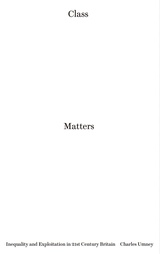

Composition has been a microcosm of the corporatization of higher education for thirty years, with adjuncts often handling the hard work of writing instruction. We've learned enough to know that change is needed. Influenced by the efforts of organizations such as New Faculty Majority, Faculty Forward, PrecariCorps, and national faculty unions, this collection highlights action, describing efforts that have improved adjunct working conditions in English departments. The editors categorize these efforts into five threads: strategies for self-advocacy; organizing within and across ranks; professionalizing in complex contexts; working for local changes to workload, pay, and material conditions; and protecting gains.
Contributors to this collection include contingent and tenure-line faculty from private, public, and community colleges, as well as writing program administrators and writing center faculty. Their voices address contingency, exploitation, and solidarity in activist terms deriving from institutional realities and cases. Collectively, they offer creative and constructive responses that can enact labor justice and champion the disciplinary energies of all members of our collegial community.
Contributors: Janelle Adsit, Jacob Babb, Chris Blankenship, Rebekah Shultz Colby, Richard Colby, Anicca Cox, Sue Doe, Tracy Donhardt, Dawn Fels, Barbara Heifferon, Desirée M. Holter, Justin Jory, Jeffrey Klausman, Michelle LaFrance, Sarah Layden, Carol Lind, Maria Maisto, Amanda Martin, Mark McBeth, Tim McCormack, Joan Mullin, Dani Nier-Weber, Glenn Moomau, Michael Murphy, Anna K. Nardo, Rolf Norgaard, Courtney Adams Wooten, Lacey Wootton, Allison Laubach Wright

Winner of the United Association for Labor Education Book Award 2021, this is essential reading for everyone who wants to understand the role of Amazon in our economy and society. With Amazon, supply-chain, and unionization in the news, it is both timely and incredibly informative.
Amazon is the most powerful corporation on the planet and its CEO, Jeff Bezos, has become one of the richest individuals in history, and one of the few people to profit from a global pandemic. Its dominance has reshaped the global economy itself: we live in the age of “Amazon Capitalism.”
“One-click” instant consumerism and its immense variety of products has made Amazon a worldwide household name, with over 60% of US households subscribing to Amazon Prime. In turn, these subscribers are surveilled by the corporation. Amazon is also one of the world's largest logistics companies, resulting in weakened unions and lowered labor standards.
The company has also become the largest provider of cloud-computing services and home surveillance systems, not to mention the ubiquitous Alexa.
With cutting-edge analyses, this book looks at the many dark facets of the corporation, including automation, surveillance, tech work, workers' struggles, algorithmic challenges, the disruption of local democracy and much more. The Cost of Free Shipping shows how Amazon represents a fundamental shift in global capitalism that we should name, interrogate, and be primed to resist.

How can exploitation and even class division occur in socialist societies? The question is not merely embarrassing for Marxists and socialists. It is also a deep puzzle for economic theorists. In this original and powerful work, John Roemer proposes a general theory of exploitation which provides a game theoretic framework for expressing any conception of exploitation—feudal, capitalist, or socialist—in a standardized and explicit way, thus permitting a clear comparison of different ethical conceptions. As well as applying the general theory to an analysis of socialist society, Roemer uses it to contrast Marxian and neoclassical conceptions of exploitation. By placing the Marxian conception of exploitation in the context of a more general theory, Roemer provides fresh insights into classical questions, and resolves several old problems in Marxian economics.
The book also contains a formal theory of class formation. Once the behavior and institutional specifications of an economy are given, classes emerge endogenously in the model. In a major theorem Roemer relates the two key characteristics of a person in a given economy: his class position and his status as exploiter or exploited. Finally, he shows that the general theory of exploitation can be viewed as the formal translation into economic language of the theory of historical materialism. In its mathematical power and precision, its skillful use of general equilibrium and game theory, the book will become an important bridge between Marxist and neoclassical economics.


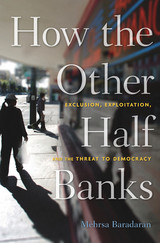
The United States has two separate banking systems today—one serving the well-to-do and another exploiting everyone else. How the Other Half Banks contributes to the growing conversation on American inequality by highlighting one of its prime causes: unequal credit. Mehrsa Baradaran examines how a significant portion of the population, deserted by banks, is forced to wander through a Wild West of payday lenders and check-cashing services to cover emergency expenses and pay for necessities—all thanks to deregulation that began in the 1970s and continues decades later.
“Baradaran argues persuasively that the banking industry, fattened on public subsidies (including too-big-to-fail bailouts), owes low-income families a better deal…How the Other Half Banks is well researched and clearly written…The bankers who fully understand the system are heavily invested in it. Books like this are written for the rest of us.”
—Nancy Folbre, New York Times Book Review
“How the Other Half Banks tells an important story, one in which we have allowed the profit motives of banks to trump the public interest.”
—Lisa J. Servon, American Prospect
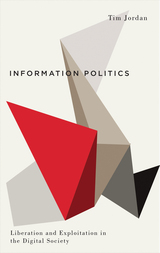
The first of Pluto Press’s new Digital Barricades series, focusing on ground-breaking critical explorations of resistance within the digital world, Information Politics explores the exploitations both facilitated by, and contested through, increases in information flows; the embedding of information technologies in daily life; and the intersection of network and control protocols. Anyone hoping to get to grips with the rapidly changing terrain of digital culture and conflict should start here.
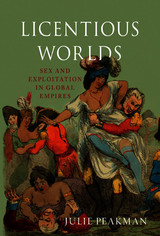
The book describes women in Turkish harems, Mughal zenanas, and Japanese geisha houses, as well as in royal palaces and private households and onboard ships. Their stories are drawn from many sources—from captains’ logs, missionary reports, and cannibals’ memoirs to travelers’ letters, traders’ accounts, and reports on prostitutes. From debauched clerics and hog-buggering Pilgrims to sexually-confused cannibals and sodomizing samurai, Licentious Worlds takes history into its darkest corners.
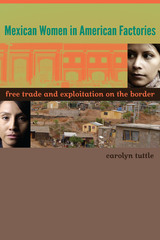
Prior to the millennium, economists and policy makers argued that free trade between the United States and Mexico would benefit both Americans and Mexicans. They believed that NAFTA would be a “win-win” proposition that would offer U.S. companies new markets for their products and Mexicans the hope of living in a more developed country with the modern conveniences of wealthier nations. Blending rigorous economic and statistical analysis with concern for the people affected, Mexican Women in American Factories offers the first assessment of whether NAFTA has fulfilled these expectations by examining its socioeconomic impact on workers in a Mexican border town.
Carolyn Tuttle led a group that interviewed 620 women maquila workers in Nogales, Sonora, Mexico. The responses from this representative sample refute many of the hopeful predictions made by scholars before NAFTA and reveal instead that little has improved for maquila workers. The women’s stories make it plain that free trade has created more low-paying jobs in sweatshops where workers are exploited. Families of maquila workers live in one- or two-room houses with no running water, no drainage, and no heat. The multinational companies who operate the maquilas consistently break Mexican labor laws by requiring women to work more than nine hours a day, six days a week, without medical benefits, while the minimum wage they pay workers is insufficient to feed their families. These findings will make a crucial contribution to debates over free trade, CAFTA-DR, and the impact of globalization.


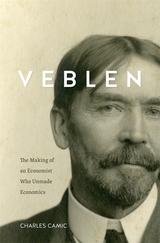
A bold new biography of the thinker who demolished accepted economic theories in order to expose how people of economic and social privilege plunder their wealth from society’s productive men and women.
Thorstein Veblen was one of America’s most penetrating analysts of modern capitalist society. But he was not, as is widely assumed, an outsider to the social world he acidly described. Veblen overturns the long-accepted view that Veblen’s ideas, including his insights about conspicuous consumption and the leisure class, derived from his position as a social outsider.
In the hinterlands of America’s Midwest, Veblen’s schooling coincided with the late nineteenth-century revolution in higher education that occurred under the patronage of the titans of the new industrial age. The resulting educational opportunities carried Veblen from local Carleton College to centers of scholarship at Johns Hopkins, Yale, Cornell, and the University of Chicago, where he studied with leading philosophers, historians, and economists. Afterward, he joined the nation’s academic elite as a professional economist, producing his seminal books The Theory of the Leisure Class and The Theory of Business Enterprise. Until late in his career, Veblen was, Charles Camic argues, the consummate academic insider, engaged in debates about wealth distribution raging in the field of economics.
Veblen demonstrates how Veblen’s education and subsequent involvement in those debates gave rise to his original ideas about the social institutions that enable wealthy Americans—a swarm of economically unproductive “parasites”—to amass vast fortunes on the backs of productive men and women. Today, when great wealth inequalities again command national attention, Camic helps us understand the historical roots and continuing reach of Veblen’s searing analysis of this “sclerosis of the American soul.”

The long and pernicious relationship between fast food restaurants and the African American community
Today, fast food is disproportionately located in Black neighborhoods and marketed to Black Americans through targeted advertising. But throughout much of the twentieth century, fast food was developed specifically for White urban and suburban customers, purposefully avoiding Black spaces. In White Burgers, Black Cash, Naa Oyo A. Kwate traces the evolution in fast food from the early 1900s to the present, from its long history of racist exclusion to its current damaging embrace of urban Black communities.
Fast food has historically been tied to the country’s self-image as the land of opportunity and is marketed as one of life’s simple pleasures, but a more insidious history lies at the industry’s core. White Burgers, Black Cash investigates the complex trajectory of restaurant locations from a decided commitment to Whiteness to the disproportionate densities that characterize Black communities today. Kwate expansively charts fast food’s racial and spatial transformation and centers the cities of Chicago, New York City, and Washington, D.C., in a national examination of the biggest brands of today, including White Castle, KFC, Burger King, McDonald’s, and more.
Deeply researched, grippingly told, and brimming with surprising details, White Burgers, Black Cash reveals the inequalities embedded in the closest thing Americans have to a national meal.
READERS
Browse our collection.
PUBLISHERS
See BiblioVault's publisher services.
STUDENT SERVICES
Files for college accessibility offices.
UChicago Accessibility Resources
home | accessibility | search | about | contact us
BiblioVault ® 2001 - 2024
The University of Chicago Press









